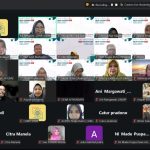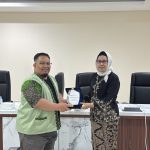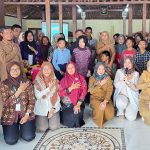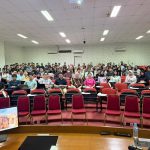Reviving Critical Thinking and Sense of Ethics and Humanity through “Exploring Human Enhancement Technology”
Wika Hartanti(1*), Nurazid Mahardinata(2), Soenarto Sastrowijoto(3)
(1) Department of Medical Education and Bioethics; Faculty of Medicine, Public Health, and Nursing; Universitas Gadjah Mada; Indonesia
(2) Department of Medical Education and Bioethics; Faculty of Medicine, Public Health, and Nursing; Universitas Gadjah Mada; Indonesia Centre for Bioethics and Medical Humanities; Faculty of Medicine, Public Health, and Nursing; Universitas Gadjah Mada; Indonesia
(3) Department of Medical Education and Bioethics; Faculty of Medicine, Public Health, and Nursing; Universitas Gadjah Mada; Indonesia
(*) Corresponding Author
Abstract
Background: Ethical challenges in primary care practices are inevitable, especially with the current development and application of advanced technology which shifted the practice of medicine. Medical education institutions have no choice except to prepare and equip future doctors with a moral and ethical capacity to deal with this challenge. The “Human Enhancement Technology” (HET) module was developed and delivered in an attempt to address this need.
Objective: Our study aimed to explore the HET module’s effectivity and acceptance from students’ perspectives.
Method: We conducted a qualitative study on students’ online commentaries posted daily throughout the course. We performed content analysis to explore three main issues: (1) opinions on the module design (contents and methods); (2) reflections on overall learning experiences; and (3) applicability of the knowledge and skills. We analyzed students’ grade to confirm learning objectives achievements and effectivity of the module.
Result: A total of 78 medical students self-enrolled into this elective module and wrote daily online commentaries. Students described the HET module as unique and extraordinary because it taught attractive yet rare topics with engaging learning methods, unlike the standard medical subjects. The learning experience in HET module was life-changing and transforming students’ opinions and attitudes. Students acquired three essential lessons from HET module, in the form of hands-on experience in critical thinking and analysis, as well as sensitization to ethics and humanity issues. The module provided knowledge and skills applicable in medical practice, also necessary for students’ preparation in entering clinical settings. Students were inspired to use the knowledge and skills gained from this module to be better doctors, deliver comprehensive patient care, and contribute more to humanity. Conclusion: The HET module was delivered effectively and well accepted by the students. Most importantly, the course had successfully engaged students in various personalized form and influenced students’ p ositive t ransformation r egarding personal, academic, and professional commitments. The module showed potentials for further development and implementation as part of the mandatory medical curriculum
Keywords: bioethics; human enhancement technology; humanities; medical education
Full paper can be accessed here






